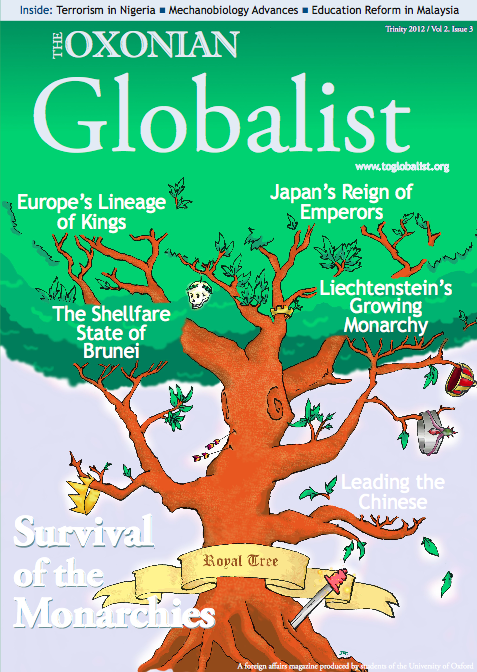
Download in Progress: Is banning the illegal use of copyrighted material impinging on the human right to freedom of speech? Photo by Mike Davis via Flickr.
ON January 18th, popular websites Wikipedia and Reddit shut down in protest against a new copyright protection bill that was then under consideration by the United States Congress. The Stop Online Piracy Act (SOPA) and the PROTECT IP Act (PIPA) were the latest government efforts at curbing the sharing of copyrighted material online. The issue pits the usual contenders of traditional media companies, who see strict regulation as the only way to prevent the destruction of their industry, against online content providers and free speech advocates, who see the proposed legislation as deliberate silencing at its worst.
The protests were sufficient to derail the legislative process. On the day of the blackout, six Republican supporters of PIPA, Senators Kelly Ayotte of New Hampshire, John Boozman of Arkansas, Roy Blunt of Missouri, Orrin Hatch of Utah, Mark Kirk of Illinois and Marco Rubio of Florida, had withdrawn their support. By the end of January 19th, the legislative coalition behind SOPA and PIPA had collapsed and the bills were shelved indefinitely.
Despite the widespread opposition, however, it remains likely that similar legislation will still be considered. In his response to the petition against SOPA, President Barack Obama stated that while he would not support legislation that would lead to censorship of the Internet or damage innovation, he would encourage legislation that “provides prosecutors and rights holders new legal tools to combat online piracy originating beyond US borders”.
President Obama’s statement captures a central issue in governmental struggles against internet piracy. In order to be successful, legislation must address not only domestic but also international sources of copyrighted material. Traditionally, anti-piracy efforts have focused on persistent domestic users. In October 2009, the French government adopted a law to suspend the internet access of anyone receiving three warning letters for online copyright infringement in a year. Similar legislation was included in the 2010 Digital Economy Act in the United Kingdom, although this has yet to be implemented. In the United States, file sharers have been combated largely through civil cases by the media industry.
Failed Attempts
Action against the providers of copyrighted material has been stymied by the international and shifting nature of file sharing. The Pirate Bay, self-declared as “the galaxy’s most resilient BitTorrent site”, even goes so far as to keep the location of its servers secret, and has at various points in its history been hosted in Sweden, the Netherlands, and Ukraine. Recently proposed legislation, such as SOPA and PIPA, would have allowed governments to force internet service providers to block access to websites that provide copyrighted material.
Similar provisions were to be included in the 2010 Digital Economy Act, although they were later removed after a review by Ofcom, an independent regulator of TV, radio and wireless airwaves in the United Kingdom. Legislation like this demonstrates that national governments recognise that any effective campaign against online copyright infringement must be inter- national. However, the prospect of ordering Internet Service Providers to block offending websites attracts criticism from internet freedom groups, who have accused governments of promoting censorship and forecasted the death of websites such as YouTube that host user-generated content. Sir Tim Berners-Lee, inventor of the World Wide Web, argued that SOPA and PIPA had “not been put together to respect human rights as is appropriate in a democratic country”.
One potential successor to the failed bills is the Anti- Counterfeiting Trade Agreement (ACTA), a plurilateral trade agreement that has been under negotiation since 2007. In a January entry on the Electronic Frontier Foundation Deeplinks blog, they described ACTA as the “one thing that encapsulates what’s wrong with the way government functions today” because of the lack of transparency with which it was negotiated.
The objective of ACTA is to standardise domestic anti-piracy legislation across much of the industrialised world, despite having no domestic force. As a trade agreement, its stipulations are quite vague, and much of the concern over early drafts is not justified by the most recent version. In effect, ACTA is only a threat to internet freedom after individual signatories have passed enabling legislation.
The Virtual becomes Physical
In addition to the aforementioned blackout in response to PIPA and SOPA, a petition organised by Google gathered over 7 million signatures, and the online protests were accompanied by real-world demonstrations, indicating the growing salience of internet-related issues in real-world politics. On February 3rd, the Polish Prime Minister Donald Tusk announced that his country’s ratification of ACTA would be suspended pending further consultations. This reversal came after days of street protests in late January and a protest in Parliament on the 26th in which opposition politicians donned the Guy Fawkes masks made infamous by Anonymous, the “hactivist” group also known for their Denial of Service attacks against government websites.
In the United States, online protests against SOPA and PIPA were accompanied by demonstrations in New York City, Seattle, and San Francisco. On the extreme end of the internet freedom debate, several European states have seen the rise of Pirate Parties, political parties that campaign on a platform of internet freedom and reform of copyright and patent law. While their electoral success has been limited, the Piratenpartei Deutschland currently holds 15 state parliament seats in Berlin, and the Swedish Piratpartiet has sent two members to the European Parliament.
There are two key lessons to be drawn from recent clashes over anti-piracy legislation. First, all future legislation will concentrate on preventing the supply of copyright-infringing material as well as prosecuting those who consume it. Second, that the architects and proponents of stricter online regulation have already lost the public relations battle. The vociferous response, both online and offline, to SOPA and PIPA indicates that digital natives will fight on the world stage.



